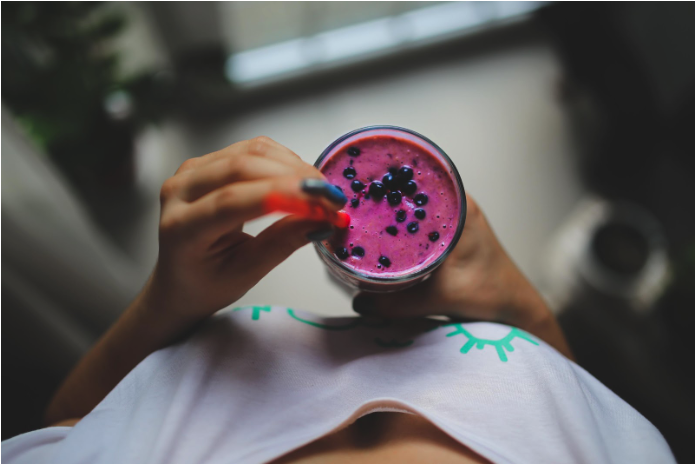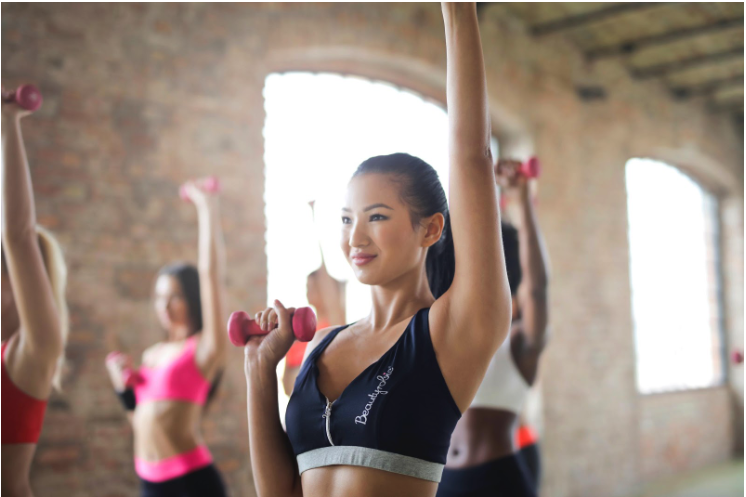fitness
The Best Protein Powder for Women: How to Choose This Year Based on Goals, Taste, and More
On This Page

Ladies, curious how to pick the best protein powder in 2024? Look no further.
We need to talk about protein. You hear about protein from the guys who tell their friends they want to “bulk up” or “get swole,” but that’s really not the whole picture. Though protein can be used to bulk up or build lean muscle, this is an incredibly limited view of just how beneficial protein can be.
Proteins are biochemical molecules, containing chains of amino acids chemically bonded by peptide bonds, and we need them in our diet because they supply indispensable amino acids that our bodies cannot synthesize on their own.
While protein is beneficial for weight management, muscle development, and recovery after exercise, it also does so much more, providing the foundations used to make and maintain muscle, bone, skin, and an array of vital hormones and enzymes. We need to eat foods that contain protein in order to stay healthy, and this is where protein powders can come in, filling in the nutritional gaps that may be occurring in your diet, or to help supplement your current lifestyle.
Just take it from dietician Jillian Kubala: “While whole foods are always the best source of protein, powder supplements are a smart and convenient way for busy women to meet their nutritional needs.” Whether you’re looking to build lean muscle or just stay fit, adding a protein shake to your routine can help you get there.

While there is no one reason for women to take protein powder, figuring out which one is right for you can be overwhelming. To help you choose, we’ve identified the questions you need to be asking yourself.
Choosing a protein powder
1. Diet
Foods like eggs, beef, almonds, chicken, and fish are already chock full of protein, but to make sure you’re receiving the proper protein intake, take a second to calculate how much you should be taking. Protein, like most things in life (or a new season of Sabrina on Netflix), should be taken in moderation. You may already be intaking a good amount of protein, just from your regular diet!
Something to keep in mind is as well is the current RDA (Recommended Dietary Allowance). This currently suggests protein intake to be .8g per kilogram of your body weight. This isn’t necessarily the amount you should be consuming daily, but rather is the minimum you should consider taking.
2. Exercise
Think about how much exercise you engage in regularly, and what kind of exercise in particular. Depending on your workout, your individual protein needs could vary. Athletes and those who engage in intense exercise are more likely to need higher amounts of protein as well as those who are looking to gain muscle mass and strength, as compared to exercise like yoga or pilates.
3. Health goals
Take a moment to ask yourself why you want to be taking protein powder. Are you looking to support muscle recovery, or supplement a low-protein diet? Are you trying to increase athletic performance, or fill in specific nutritional gaps? Different powders can offer different benefits, depending on what you are looking for.
4. Dietary restrictions
Consider any potential dietary restrictions, or anything you specifically want to avoid in your protein powder. Are you looking for something dairy-free, vegetarian or vegan? Do you want to avoid any animal products altogether? While many protein supplements are sourced from dairy, that doesn’t mean there isn’t another option for you.
5. Frequency and commitment
Are you looking to take a protein powder once in a while, go for a full blown daily commitment, or something in the middle? Just like with dating, there’s one for everyone.
Now that you’ve asked yourself the tough questions, we’ve laid out the best types of protein powders out there: seven, to be exact.
The seven best types of protein powders for women
Whey protein
Not just for Miss Muffet, whey is a byproduct of the dairy process (it occurs when turning milk into cheese), and is currently one of the most popular protein powders you’ll see available. Whey is a complete protein, meaning that it contains all of the nine essential amino acids, or the amino acids that the body cannot produce naturally and are needed through diet or supplementation.
Whey protein is recommended for those interested in using protein powder to assist with weight loss and lowering cholesterol levels, as well as for women interested in building muscle mass.
When looking at whey protein, you may also see that some are listed as “whey isolate” while others are “compounds.” Protein in isolate form undergoes more processing than the compound form, which then yields a higher protein content with less lactose and fat.

Plant protein
Just like whole milk vs. oat milk, we now have the choice of whey protein or plant-based protein. This one is just what it sounds like: protein powders that come from vegetarian sources such as peas, hemp, rice, soy, and pumpkin seeds, although a protein powder that is labelled as “Plant-based” is usually a combination of a few of these.
These are excellent for those who are looking to receive necessary protein without any animal products. Though they are not always complete proteins, these blends are similarly recommended for weight management and muscle gain, although this can vary depending on which proteins are in your blend.
Casein protein
If whey is about 20% of milk protein, casein is the remaining approximately 80%, and like whey, is also a complete protein. However, casein’s absorption is much slower than whey’s and causes the release of amino acids. This one is ideal for people who want to take a post-workout protein powder before bed to help with recovery or muscle growth while you sleep.
Collagen
One of the most popular protein powders out there right now, collagen’s primary purpose is binding tissue, but has also been studied for its positive effects on nail health as well as its ability to support gut health.
That being said, collagen is not a complete protein. Though collagen contains a high concentration of four amino acids in particular––glycine, proline, hydroxyproline, and arginine––collagen still only has 8 of the 9 proteins that we are unable to produce naturally, and so, is incomplete. If your primary interest is boosting your beauty or digestive health, collagen could be right for you.
Egg white protein
Egg white protein might seem like a strange one to include, but hear us out! You have a dairy allergy, but still want a complete protein. This rules out many plant-based ones, as well as collagen. Enter egg white powder, your protein savior. Since this one is sourced from chickens, they are complete proteins, just like whey and casein, and has also been studied for weight management. This type of protein is also generally lower in carbohydrates, making it particularly helpful for women with diabetes. But still keep allergies in mind––naturally, those with egg allergies should stay clear.
Soy protein
Another vegetarian alternative, soy protein is an exciting vegetarian option which, unlike many plant-based proteins, are a complete protein. Soy beans themselves contain no cholesterol and are low in saturated fat, and are the only vegetable food which contains all essential amino acids.
However, this option is a fairly controversial one, as soy protein and its powder contain phyates, or antioxidant compounds, which can decrease mineral absorption. Research for its benefits in terms of weight loss and muscle-building is mixed as well.
Brown rice protein
For those who are looking for a vegan protein that is neither soy nor plant-based, consider brown rice protein. As its name implies, this one is created from extracting rice protein from brown rice, and is vegetarian and vegan friendly. This one would be a great choice for women who are primarily looking to increase strength and muscle. However, unlike soy, brown rice protein is not a complete one, and so may not be your top choice.

Whether complete or incomplete, dairy-free or dairy-rich, you ultimately want to find a protein powder that is as unique as you are. That being said, there’s always your budget to think about as well, so consider if you’d rather be spending money on one, single powder that has all the complete proteins, or on one that doesn’t necessarily have all nine amino acids. This is especially important for vegetarians and vegans to consider, as getting complete protein through diet alone can be tricky.
Ask yourself the important questions, and have fun shopping for your protein! And, of course, make sure you take care of the rest of your body, as protein is just one part of a healthy diet. Take our quiz to see if you are getting the supplements you need, and always run any of these changes by your doctor, especially if you are currently taking any medications.



